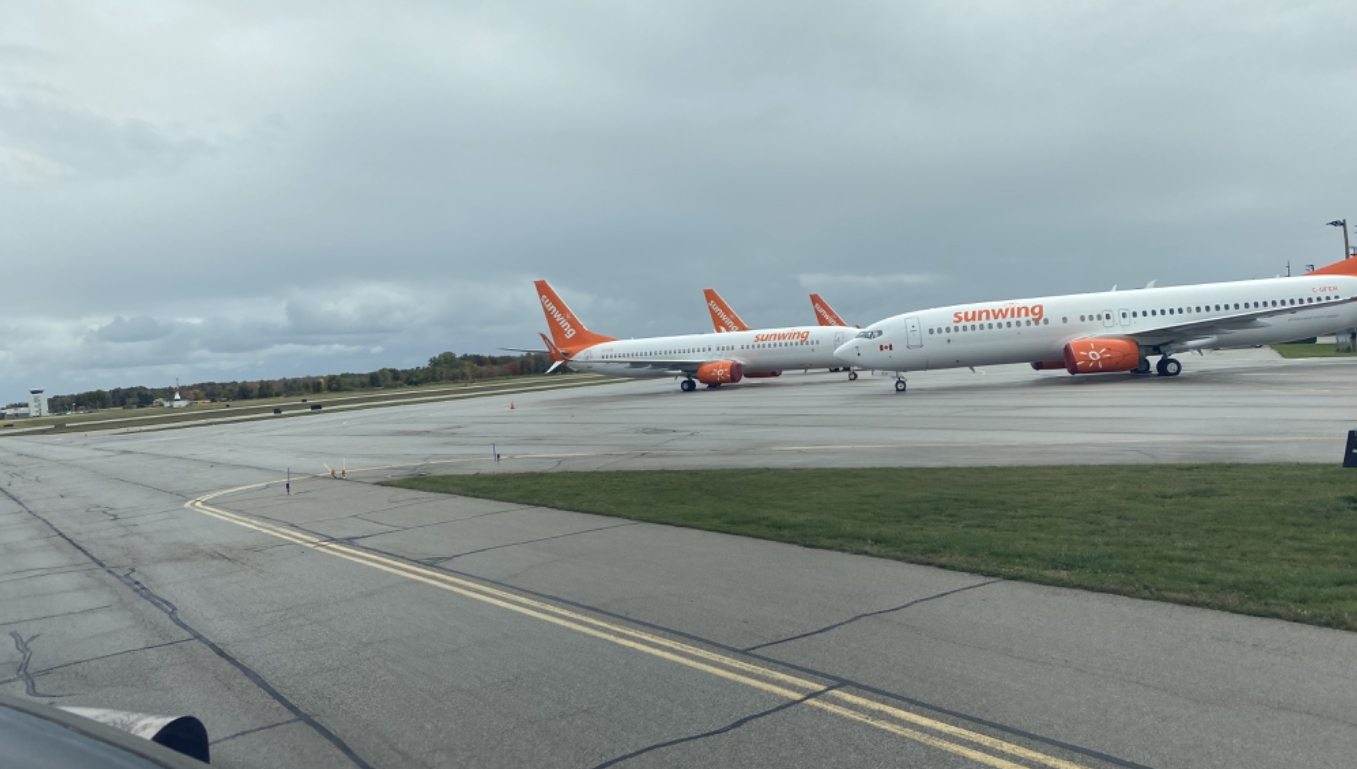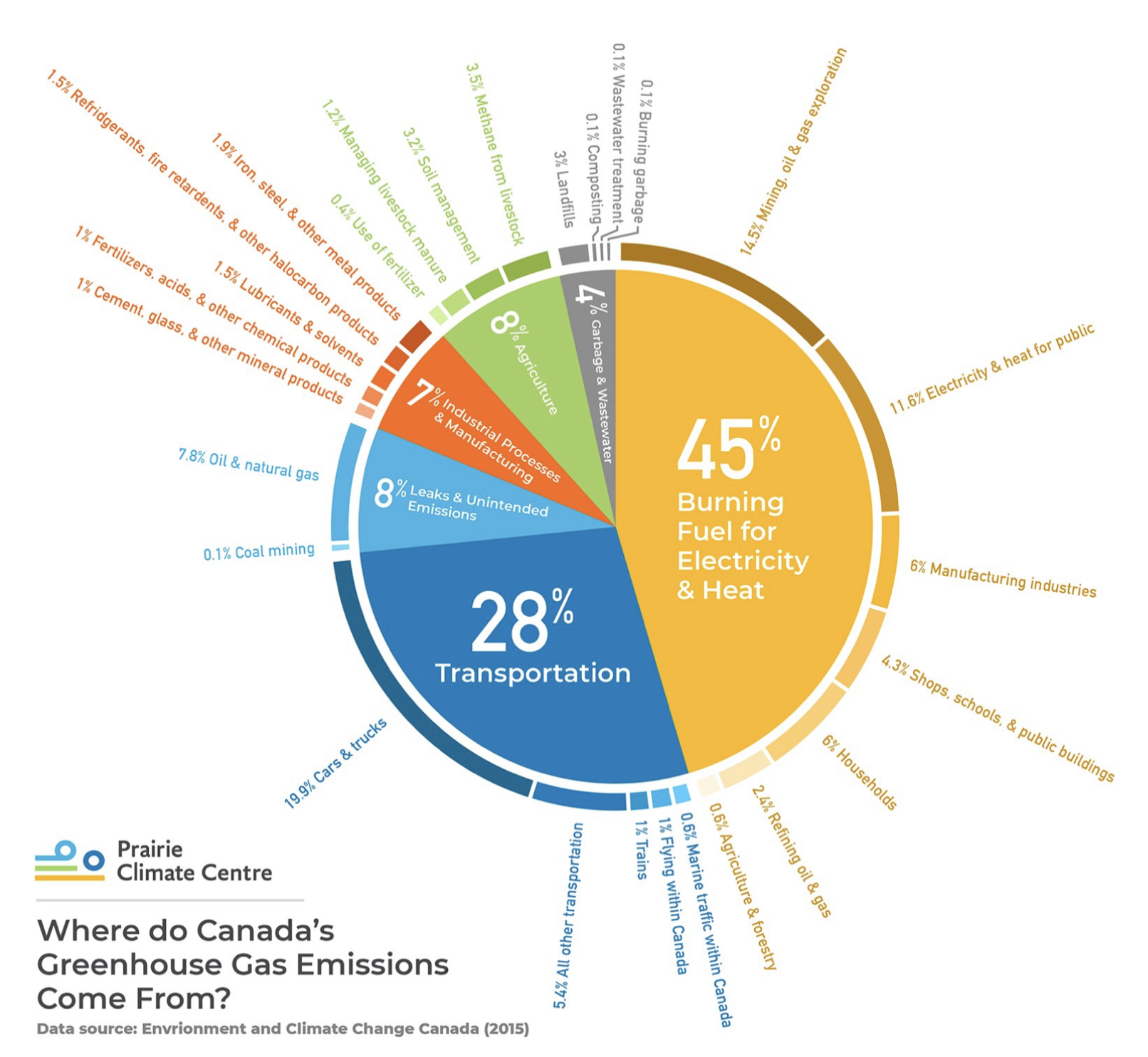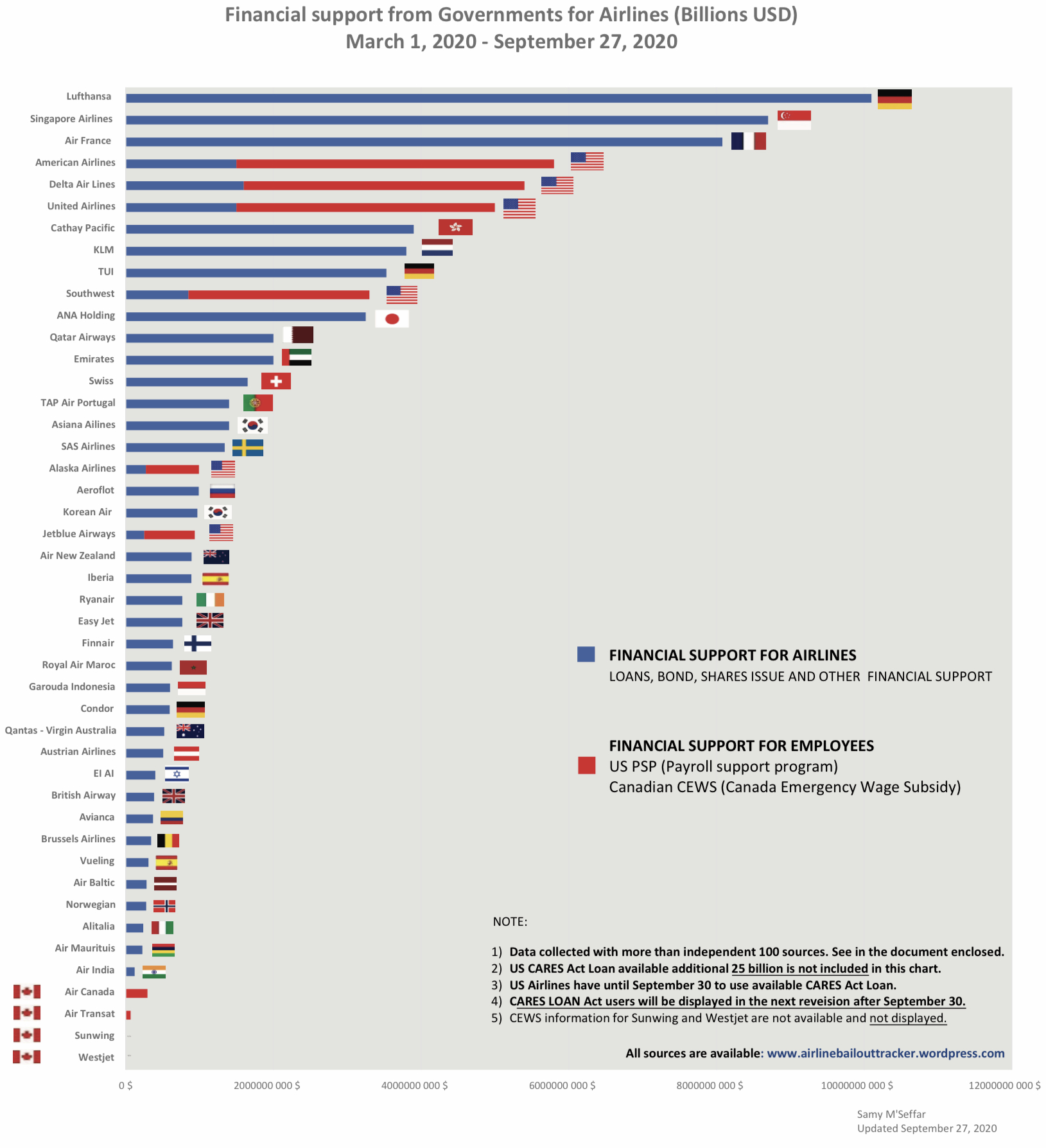
Written by Mark Brooks, Oct 5 2020.
The Canadian economy is in recession, the planet is on fire, racial injustice has been laid bare and a global pandemic threatens to kill our most vulnerable citizens. As 2020 turns into a dumpster fire of a year overburdened with multiple crisis, or are they related, and which way is forward? What is aviation’s role in the big picture and how does it fit into a sustainable, prosperous and just future?
The pandemic has hit aviation especially hard thanks to government-mandated quarantines set-up to stop the virus. With air travel down by as much as 95%, 2020 has turned into an unintentionally trial run of Flyskam (literal translation from Swedish, “Flight-Shame”). Flysham is the no-fly movement popularised by Swedish teenage activist Greta Thunberg as a means of fighting global warming.
In Canada, where cities are separated by thousands of kilometers, aviation is often the main means of domestic transportation of people and critical goods.
The freedom of movement aviation provides to common citizens weaves our communities, even those that are the very definition of “remote”, into the Canadian social and economic fabric. Canadians do not have the benefit of a European style trillion–dollar rail network or the population density that could support it. In Canada aviation is the safest, fastest and often the most carbon-efficient way to travel long distances.
Aviation is also our primary means of connecting with the world. Few nations on earth are as dependent on air travel as Canada. Yet aviation produces only 3% of the carbon emissions in Canada. Despite its economic and political importance aviation is still blamed by climate activist for “unnecessary emissions”. The green party of Canada and various climate groups want to reduce the aviation industry’s role in the Canadian economy and are opposed to providing financial support during the current crisis. They ignore the impressive improvements in efficiency and the commitment by the global aviation industry to achieve carbon neutrality in line with the Paris accords and other industries by 2050.

Letting our Aviation sector fail will support isolationism, hurt our sovereignty and economy. It ignores both the global scope of the current climate crisis and the real causes. Global warming is being caused by unsustainable global growth policies-not aviation. Shutting down Canada’s aviation industry will not stop China’s plans to build 20 new coal fired electric plants or stop the clear cutting of the Amazon or combat the gross plastic pollution of our oceans predominantly by other nations. Restricting communal air travel will only encourage less efficient forms of individual long distance travel by road. Automobiles already produce 20% of Canada’s emissions, compared to 1% from domestic aviation and 2% from international aviation.
We must not sacrifice our aviation workers and Canada’s economy on the altar of environmental virtue signalling.
The global economy genie is out of the bottle and is accelerating economic development, connectivity, and interdependence on a global scale. This acceleration is being created by technology advances in communications, and advances in aviation efficiency that are reducing travel costs and enabling the unparalleled economic mobility of people and services.
The upside of this growth is an unprecedented rise in standards of living, literacy and economic development around the world. The downside is unsustainable environmental stress, an increasing rise of nationalism, xenophobia and social upheavals. From trade wars (clashes between economic systems) to “Me First”nationalism, the growth in global prosperity and free trade has many challenges. Today the most pressing challenge is a pandemic that is consuming traveling the world in record time.
The economic pressure caused by the pandemic has exposed the depths of racial injustice and economic inequality. For many on the extreme political right or left the opposition to globalization has become a core policy pillar and aviation a hated enabler. From flight shaming to opposing new aviation infrastructure, the anti-globalization movement seeks to use the pandemic as an excuse to stuff the global economy genie back into its bottle by crippling aviation in any way possible. Yet the results of the unexpected suspension of air travel has only highlighted its importance to our economy and its role in mankind’s future prosperity.
As a trade-reliant nation with a small population over a large geographic area, Canada is dependent on aviation to move high value and perishable goods as well as people. In 2018, 1.4 million metric tons of cargo was moved within Canada, 52 million metric tons worldwide. Globally Air cargo transports over US $6 trillion worth of goods, accounting for approximately 35% of world trade by value. Safe efficient air travel is a core enabler of the Canadian economy now and in the future.
The reality is that the only feasible path forward is to help aviation soar while encouraging sustainable economic development, continued technology advances, cooperation and coordination on a global scale. ICAO (International Civil Aviation Organization) has charted a path forward with its CORSIA initiative to enable aviation to be carbon neutral within 10 years. By improving the efficiency and reducing carbon emissions of aircraft and airports, both Canada and the world’seconomy can get to net zero emissions by 2050. In Canada, the majority of commercial airports, representing over 80 percent of the 2019 passenger traffic, are currently pursuing accredited carbon neutral operations.
Governments around the world are stepping up to the challenge with financial support. It is time to fund and implement new bio–hazard and cleaning standards. It is time to mandate and fund pre–boarding tests for COVID for each passenger. It is time to provide new financial support to aviation industry workers temporarily furloughed during the industry’s transition. The Canadian Government must step up and help the industry through this crisis, just like other governments around the world are doing.

NAVCANADA has reduced services to save money, furloughing hard-to-replace air traffic controllers. These measures are potentially compromising safety both now and in the future. Air Canada and WestJet have cut domestic and international routes, laid off employees including pilots and are asking for financial support to enable them to keep critical domestic routes open.
It is to be hoped that 2020 will be remembered as the year when Canadians realized that a single GLOBAL trend is at the root of many of our problems, and a robust aviation system is the key to our economic opportunities. It is time for the Canadian government, and its Minister of Transportation to provide the leadership that Canada needs in this time of crisis. It is time to provide emergency funding to parts of the aviation sector, especially front line workers with critical skills that will be needed in the future.
You can send that message now by signing a petition from the Airline Pilots Association (ALPA). ALPA Canada has tabled this MP-sponsored petition in the Canadian parliament.
Please click here to sign the petition.
The petition will be available for a period of 30 days. Please sign it today!
Long term our government needs to assist with or at least get out of the way of the development of new aviation infrastructure. Lead, follow or get out of the way, it is time for action from our elected leaders.
References:
The World banks role in supporting aviation
Air Cargo 35% of global trade by value
Canadas action plan on Aviation emissions
The March to Save Aviation on Oct 20, 2020
U surprise me sometimes.
good stuff ..